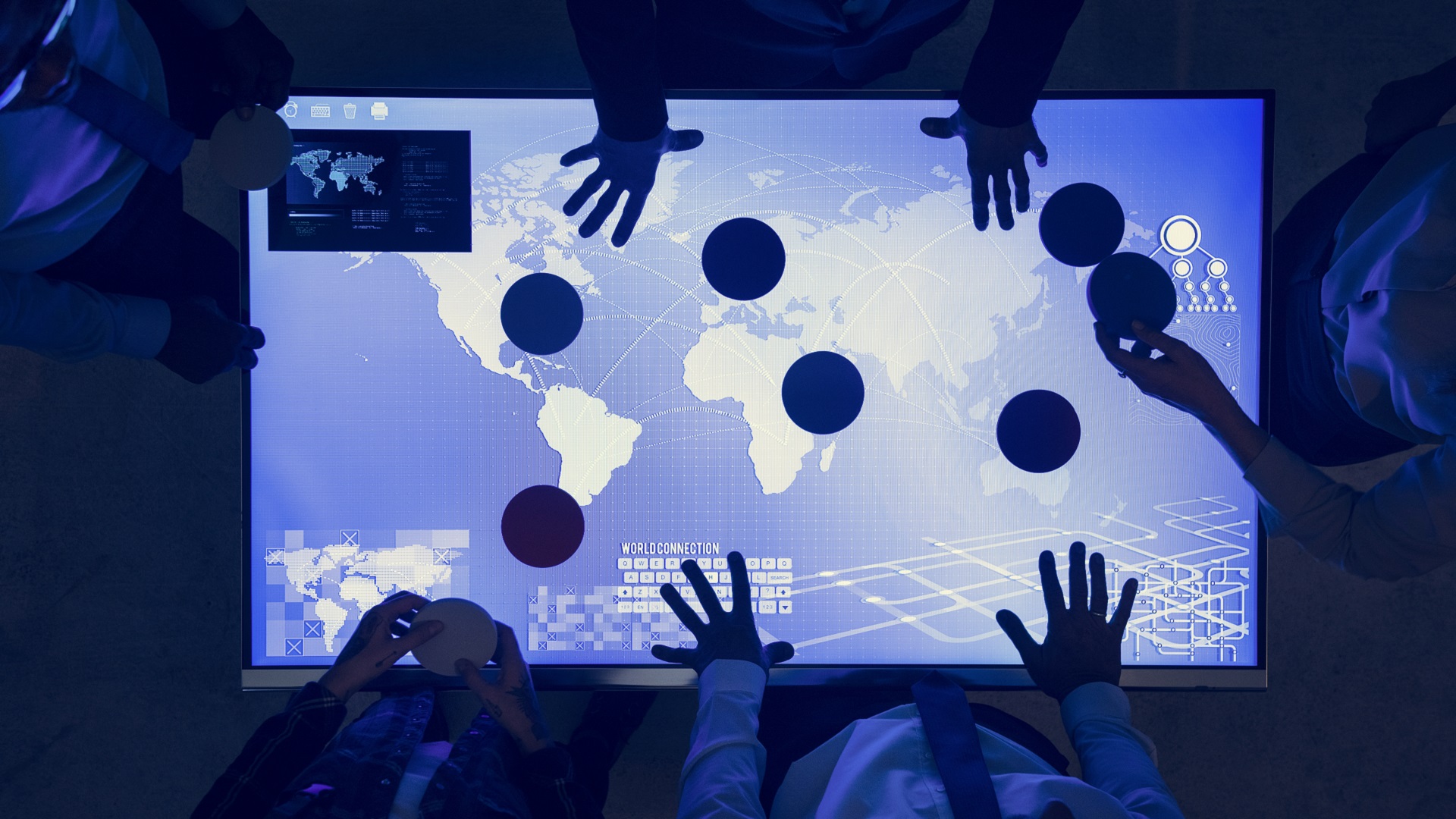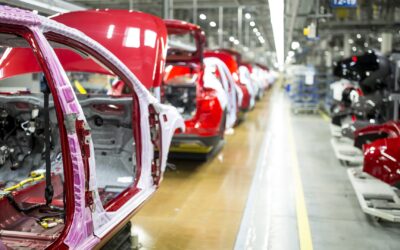If there’s one consistent in global manufacturing today, it’s the certainty that tomorrow is unknown. As we embrace the ongoing evolution of Industry 4.0, a slew of emerging technologies are making waves across industries and stand to redefine how we work and live. The fast pace of technological change has highlighted the need for a unified set of international standards as well as government regulations that foster responsible innovation and ensure the ethical use of advanced technologies.
Additionally, global resilience is being tested by multifaceted disruptors. Supply chain uncertainty has underscored the need for resilience and flexibility in manufacturing operations. Trade disputes persist and escalate, while sustainability and environmental concerns are becoming more prominent, leading to a growing emphasis on green manufacturing practices and the development of eco-friendly materials and processes.
Automation Alley takes pride in being a trusted authority for providing forward-looking insights into the realm of digital transformation, particularly within this era of unpredictability. Through our Integr8 Roundtables, we facilitate industry, academia, and governmental entities to create a comprehensive playbook featuring leading voices in the field. These roundtables offer a prospective outlook and recommendations on the evolving digital transformation trends in the years to come.
Leading the Change: Tech Trends
The rapid pace of technological change associated with Industry 4.0 is fundamentally reshaping the global industrial landscape, and it distinguishes itself from the industrial revolutions that preceded it because of its accelerated pace. Industry 4.0 is characterized by the convergence of digital technologies, like the Internet of Things (IoT) and artificial intelligence (AI), creating an interconnected ecosystem. As this transformation unfolds, certain technologies are emerging as true game-changers, with the potential to disrupt entire industries. In this dynamic landscape, it becomes increasingly important for individuals and organizations alike to closely monitor these developments and remain ever-vigilant to the profound changes ahead.
“You can’t manage what you can’t measure,” Wipfli senior director Mo Abuali said. “That is the beginning of Industry 4.0, getting connected with data, measuring where you are and driving change in the operation.” Many manufacturers are starting pilots in Industry 4.0, Abuali added.
“But we see a great challenge in scaling the pilots — the conversion between pilot and scalability is the greatest challenge our clients are facing.”
Wipfli surveyed 330 manufacturers for its 2024 State of Manufacturing Report. 88% of companies expect to see revenue increases in 2024, 71% intend to increase Industry 4.0 technology investment, and 99% place importance on digital transformation and technological advancement. However, only 47% are using robotics or automation, and only 36% are using AI in some form in their organization.
“Manufacturers are looking into artificial intelligence in not just generative AI, but industrial AI to improve maintenance quality, and sustainability. It is not an overnight journey, but a three-to-five-year roadmap for manufacturers to get into Industry 4.0.”
AI: The Transformative Force Shaping Every Aspect of Our World
AI has dominated the public domain since ChatGPT’s viral release in November of 2022. The AI large language model program set the record for the fastest growing user-base in history in February 2023, reaching 100 million users in a time-frame of two months. But manufacturing technicians know that it’s been relevant for much longer. For example, AI-driven predictive maintenance and quality control are common use cases in industry. Within the past decade, and increasingly over the last few years, organizations have made significant investments into the promise that AI holds for their operational efficiency.
These investments will play into the AI market at large, which is growing at an impressive rate. A 2023 Bloomberg Intelligence report forecasts the AI market will grow from its 2022 net-worth of $40 billion to $1.3 trillion in the next 10 years.
Accordingly, investors are taking note. Earlier this year, chip-making company Nvidia saw a record-high jump in its stock due to its focus on AI technology. It’s now on track to a market valuation of $1 trillion, on par with Apple, Microsoft, Saudi Aramco, Amazon, and Alphabet.
Distilling this hype from the market to the industry, manufacturing can capitalize on these technological advancements to create gains in newfound quality control systems with the help of AI analysis as well as predictive maintenance with AI analysis. However, AI will also redefine how products are designed. Generative AI design when paired with advanced additive manufacturing can lead to generation-changing gains in the industry. Companies like Relativity Space and Czinger are already demonstrating this prowess with AI generative design. In 2021, the generatively designed Czinger 21C supercar broke the Laguna Seca lap record, dethroning McLaren by two seconds. McLaren had over 50 years of racing experience compared to the upstart Czinger, which was founded in 2019.
In aerospace, Relativity Space generatively designed and additively manufactured a rocket fuselage and engine in house, circumventing a traditional supply chain spanning dozens of companies and thousands of miles. Its Terran 1 rocket withstood Max-Q (maximum mechanical stress in spaceflight) in a test flight earlier this year. Going forward, experts anticipate further investments into AI across the board, especially in the realm of business where smart technologies are already proving themselves worthwhile.
Additive Manufacturing: A Sustainable Game-Changer for Manufacturing
A once-niche concept, additive manufacturing (AM) is now making its way into mainstream industrial operations. This method of manufacturing creates parts by adding, layer-by-layer using a 3D printer, often resulting in complex geometries that wouldn’t be possible to create with traditional “subtractive” manufacturing methods.
3D printing has been utilized for prototyping since the 1980s, but recently, advancements in both materials and software have allowed AM to become a viable option for producing functional parts at scale. According to SME, the additive manufacturing market is projected to surpass $70 billion by 2030. Its current market size is approximately $20 billion.
Increased investment and new technologies in additive manufacturing set the stage for distributed manufacturing, a concept being proven by Automation Alley’s Project DIAMOnD, that transfers production from one facility to many facilities with 3D printers capable of running the same file and recipe globally.
Additionally, 3D printing will lend itself toward mass customization. Products will no longer be constrained by the precise, yet difficult-to-change nature of a traditional assembly line. Adapting to change and tweaking design will be much easier to do with 3D printers in comparison to traditional moldmaking.
Read the full feature story via our INTEGR8 2024 Playbook here.
Sign up today for a free Essential Membership to Automation Alley to keep your finger on the pulse of digital transformation in Michigan and beyond.
Automation Alley is a nonprofit technology business association and Digital Transformation Insight Center focused on driving the growth and success of businesses in Michigan and beyond through innovation and automation. With a global outlook and a regional focus, we foster a vibrant community of innovators, entrepreneurs, and business leaders through opportunities for collaboration and learning. Our programs and services help businesses develop the skills and expertise needed to effectively jumpstart or accelerate digital transformation. By bringing together industry, academia, and government, we aim to create a dynamic ecosystem that drives innovation and growth across Michigan.




